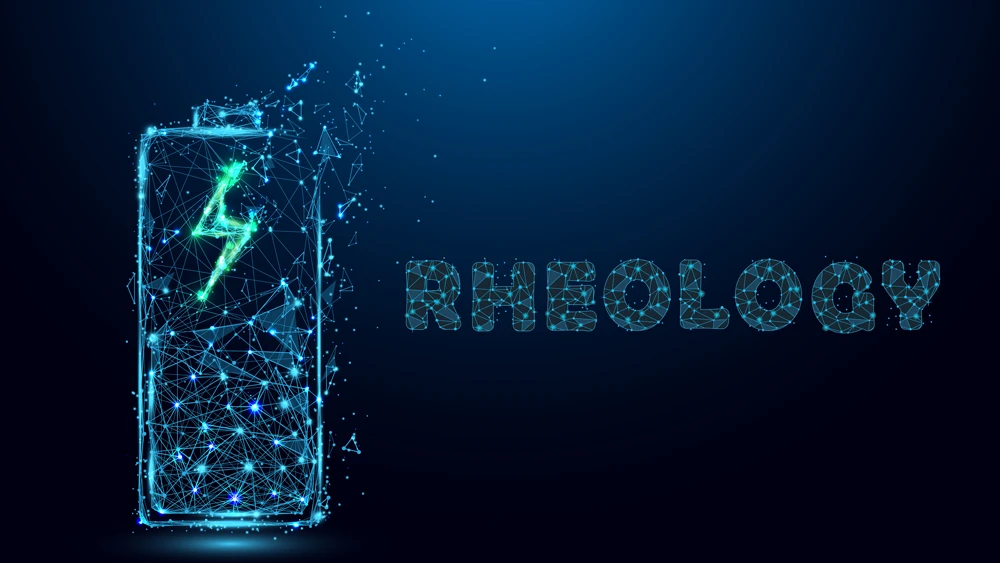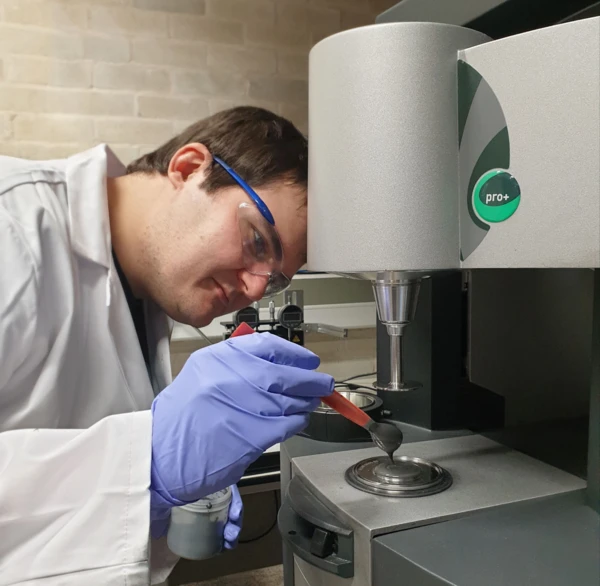
27.02.2023 by Aileen Sammler
Rheology as a Characterization Tool for Battery Electrode Manufacturing
Electrodes for lithium-ion batteries are currently made via slurry casting and with heavy investment into current manufacturing lines, this method will be common for some time. It is vital to optimize these lines for best performance and allow rapid adoption of novel, more sustainable, drop-in technologies.

Carl Reynolds is a research specialist in the Energy Materials Group at the University of Birmingham. His background is in experimental rheology and flow of complex systems, as well as using advanced metrology to solve complex manufacturing problems. Carl and his team used the Kinexus rotational rheometer by NETZSCH Analyzing & Testing for their recent battery research.
In slurry casting, active materials are mixed into a slurry and coated onto a current collector which is then dried, calendared, and assembled into a cell. Currently, these stages are optimized by trial and error and there is a need for advanced metrology and process understanding to enable in-line control, rapid optimization, and reduction of waste in time and materials.
Download the papers to learn more about the results of his work:
The first paper is about component rheology: They performed rheological characterization of all the components and combinations in industrial anodes and cathodes to investigate which were most responsible for the final flow properties:
In the second paper they set up a mini extensional rheometer to study the extensional flow of electrode slurries:
Webinar: About the Rheology of Industrial Electrode Formulations
Watch the recording here:
The rheological properties of the slurry are key in the suite of metrology for process control during electrode manufacture, as they offer important insights into slurry structure and are vital to the microstructure of the final coating.
This webinar discusses the rheology of industrial electrode formulations, and how rheology can be used as a tool to probe their structure, as well as inform the later manufacturing steps and improve process control.
We are happy to welcome our special guest speaker Carl Reynolds!
Total Battery Energy Solutions by NETZSCH
The NETZSCH Group provides total solutions for battery applications, from grinding and dispersing of battery materials, stable and contamination free pumping to stability, charging and discharging efficiency and even recycling.
Visit www.energy.NETZSCH.com to learn more.
